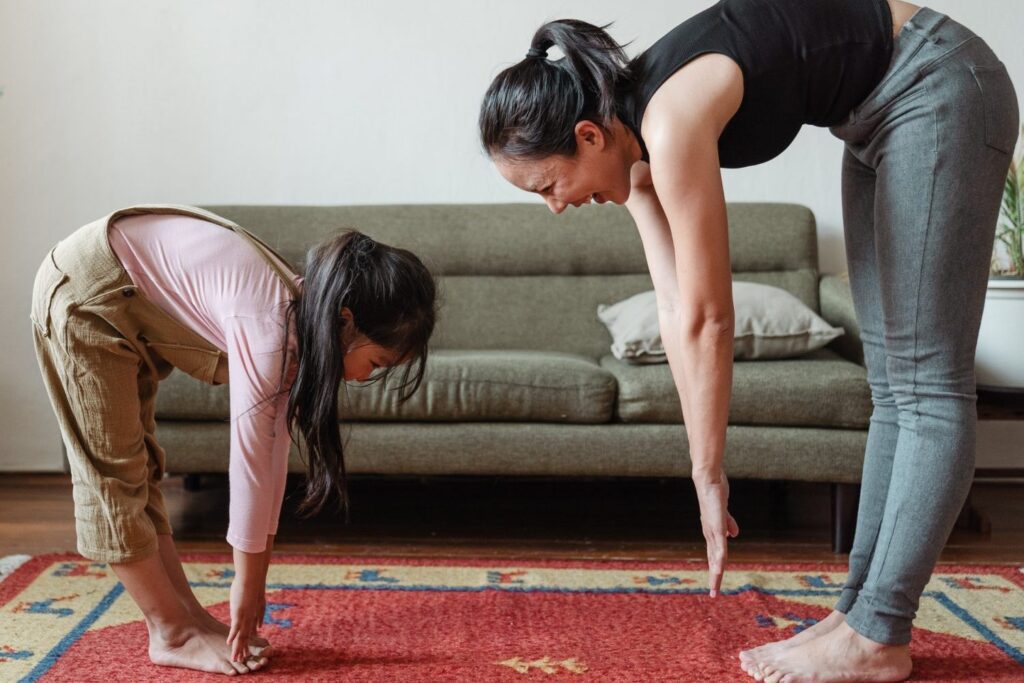It is proven that being active can improve your mental well-being. The physical benefits of being active are well documented, but research has also shown a significant positive impact on mental health. Being active doesn’t have to mean taking out an expensive gym membership, jogging at 5 am or lifting heavy weights. Going for a walk, dancing, swimming, gardening or yoga are all great examples of physical activity.
There are so many ways to be active and they can all help to improve your mental health. Here are our five top benefits of being active for your mental health:
1 Reduce Stress and Relieve Anxiety
High-intensity movement releases the hormone cortisol, which helps to manage feelings of stress, anxiety or low mood. Alongside that, the focus required to partake in any activity or learn a new skill can also help to keep our minds off negative thinking patterns, making it a good coping technique for tough times.
2 Increased Productivity
Research shows that workers who take time to exercise regularly are more productive and have more energy than their more sedentary peers. This is not only great news for your workplace productivity, but also for completing household tasks, school work or just ticking off those ‘to do’ lists.
3 Help for Depression
When you are depressed, it can leave you feeling low in energy. Although it may feel counterintuitive, regular exercise can boost your mood, and it’s especially useful for people with mild to moderate depression. High-intensity exercise releases the body’s feel-good chemicals called endorphins, resulting in a short term high! However, the real value for most people is in low-intensity physical activity sustained over a period of time. It spurs the release of proteins called neurotrophic or growth factors, which cause nerve cells to grow and make new connections.
Studies have shown people who are depressed often have a smaller hippocampus (the region in the brain that helps regulate mood). Exercise supports nerve cell growth in the hippocampus, improving nerve cell connections, which can help relieve the symptoms of depression.
4 Better Sleep
Exercise is proven to be beneficial for sleep. Being active during the day helps to make you feel tired. When it comes to your bedtime, signals within your body tell it that it’s time to wind down and go to sleep. Some studies have suggested that physical activity increases the level of deep sleep you achieve at night, meaning you wake in the morning feeling more rested. Lack of sleep can make us feel physically unwell as well as stressed and anxious. How to feel less sleepy advice.
5 Brain Boost
Cardiovascular activity (jogging, running, rowing, swimming etc) kick starts a process called neurogenesis (aka creating new brain cells) and can help improve the overall brain performance. It also prevents cognitive decline and memory loss by strengthening the hippocampus, the part of the brain responsible for memory and learning. Studies also prove that physical activity boosts creativity and mental energy. So if you’re in need of inspiration, your big idea could be just a walk or jog away.
How Active Do I Need To Be?
The NHS suggests adults (19-64 years) should aim to be physically active every day, doing at least 150 minutes of moderate-intensity activity a week or 75 minutes of vigorous-intensity activity a week. Moderate activity will raise your heart rate, and make you breathe faster and feel warmer. One way to tell if you’re working at a moderate intensity level is if you can still talk, but not sing. Vigorous-intensity activity makes you breathe hard and fast. If you’re working at this level, you will not be able to say more than a few words without pausing for breath.
Children and young people aged 5 to 18 should aim for an average of at least 60 minutes of moderate-intensity physical activity a day across the week.
All clinicians at Birmingham CBT practice Cognitive Behavioural Therapy, or are Psychologists, offering evidence-based interventions and support for a range of issues for both young people and adults. If you would like to book an appointment you can do so on our online booking portal. If you have a question please get in touch via our online contact form or call us on 01865 920077.



